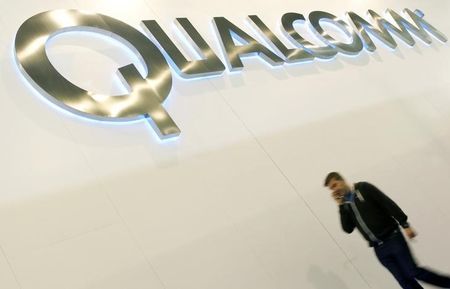By Noel Randewich and Diane Bartz
SAN FRANCISCO/WASHINGTON (Reuters) - Nvidia Corp has sued rival chipmakers Qualcomm and Samsung Electronics, accusing both companies of infringing its patents on graphics processing technology.
The U.S. chipmaker vies with Qualcomm in the business of providing chips for smartphones and tablets. It said on Thursday that Qualcomm and Samsung had used Nvidia's patented technologies without a license in Samsung's mobile devices,including the just-launched Galaxy Note 4 and Galaxy Note Edge.
Nvidia said Samsung devices made with graphics technology from Qualcomm, Britain's ARM Holdings and ImaginationTechnologies infringed on its patents.
"They're using our technology for free in their devices today and they're shipping an enormous number of devices,"Nvidia Chief Executive Jen-Hsun Huang said on a conference call.
Samsung, the world's biggest smartphone maker, said it would fight Nvidia's lawsuits.
"Following a thorough review of the complaint, we will take all measures necessary against NVIDIA's claims," the South Korean firm said in an e-mailed statement, without elaborating on the measures it could take.
Nvidia did not say it is suing Imagination or ARM but it did say it is asking the U.S. International Trade Commission toprevent shipments of Samsung devices containing ARM's Mali or Imagination's PowerVR graphics architectures, as well as Qualcomm's graphics technology.
Graphics technology from Imagination is also used in Apple Inc's iPhones. Asked whether Nvidia plans to sue Apple since it uses Imagination's technology, Huang declined to comment.
"Today we're focused on Samsung and Qualcomm, and we continue to have productive conversations with a lot of other companies out there," he said. Nvidia made its name developing leading graphics technology for high-end personal computers but has struggled to expand into smartphones, a market dominated by Qualcomm.
Nvidia discussed its patents with Samsung for "a couple" of years before deciding to take legal action, Huang said.
Last year, Nvidia announced that it planned to license its graphics technology to other companies. But it has not announced any licensing deals since then.
Nvidia said its lawsuits were filed at the U.S. District Court for the District of Delaware and at the U.S. International Trade Commission in Washington.
Such dual filings are typical of infringement lawsuits since the district courts can award financial damages and the Commission cannot. At the same time, the Commission can more easily ban infringing products from the U.S. market.

ARM declined to comment. Qualcomm did not respond to a request for comment.
(Reporting by Edwin Chan and Diane Bartz; Additional reporting by Se Young Lee in SEOUL; Editing by David Gregorio, Dan Grebler and Edwina Gibbs)
4_800x533_L_1412522645.jpg)